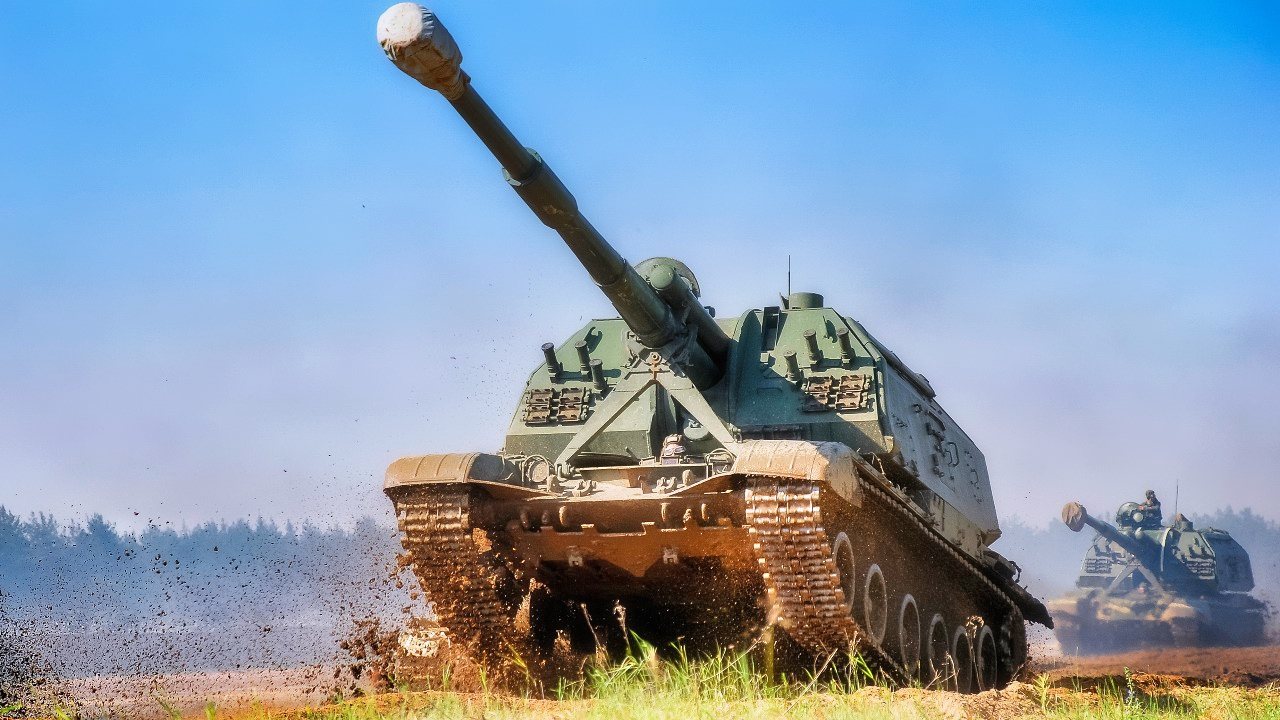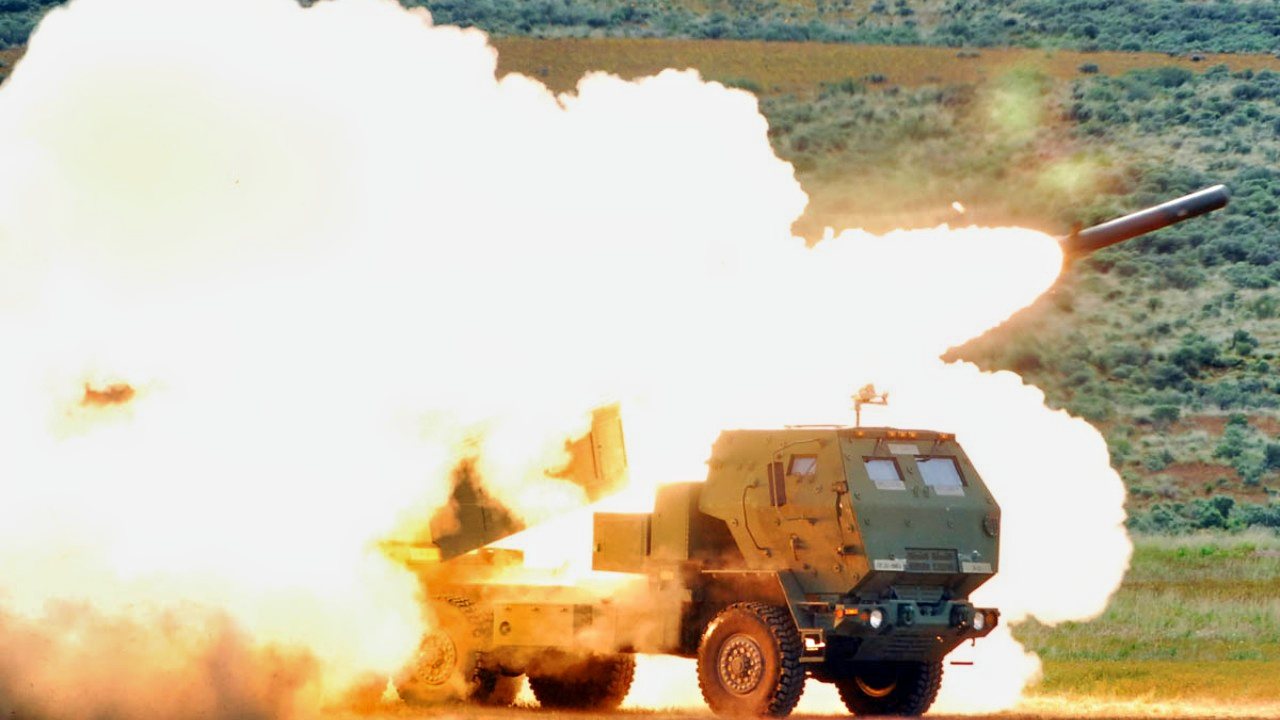How Ukraine Can Keep America In the Fight: Win

As we mark the second anniversary of Russia’s invasion of Ukraine, and Western support for the defenders seems to be flagging. That’s because the land was—the most visible and decisive theater—has stagnated, if not gone into reverse for Kyiv. The war at sea has delivered some fist-pumping successes, notably the sinking of the Russian Black Sea Fleet flagship Moskva in 2022. But seldom if ever do maritime triumphs beget decisive results in struggles over dry earth.
In short, Ukraine cannot win the war by humbling Russia at sea. Sinking ships cannot reassure Western supporters discomfited by landward stalemate that the fortunes of war will soon smile on the Ukrainian cause. Ardor for that cause will fade among friendly governments and societies unless the Ukrainian armed forces can reassert themselves on land. Supplies of funding and arms may disappear as well if apathy takes hold.
Small wonder the Biden administration’s latest aid package has stalled amid partisan infighting in Congress.
So has it always been in alliance making and breaking. There’s a kind of reciprocity when an alliance starts to coalesce. To attract allies, a weaker combatant has to show results, sometimes termed “incremental dividends” in strategy-speak, on the battlefield. In other words, the lesser contender must win battles and engagements against the stronger, even if on a modest scale. It must show it’s a winner.
Victory performs a kind of alchemy in the minds of prospective allies. Incremental dividends transform perceptions of the likely loser, casting it as the likely victor. In so doing they convince possible benefactors it’s politically safe to make common cause with the weak.
After all, few will side with a losing cause knowing they will share the bitter wages of defeat. That’s the unspoken compact: the beleaguered contender produces results on distant battlegrounds, and its benefactors produce warmaking resources. Win, and the resources keep flowing, increasing the likelihood of further winning, and on and on. It’s a virtuous cycle.
Examples of bargaining among could-be allies are legion in American history alone. By the onset of the War of American Independence, to name one, Great Britain’s European rivals had been nursing grudges against Albion for many years. They longed to regain territory lost in past defeats, to restore the balance of power, and to avenge bruised honor. Yet even after the outbreak of fighting at Lexington and Concord in 1775, they balked at allying with the American colonies—Britain’s latest foe.
Why? Because the American cause seemed hopeless.
In fact, Europeans remained skittish until the ragtag Continental Army scored a resounding victory over the British Army at Saratoga, New York, in the fall of 1777. Saratoga convinced potential allies the colonists might come out on top despite the wretched combat record they had posted till then. Theirs was not a forlorn cause after all. Victory empowered American delegates, in Paris in particular. Benjamin Franklin & Co. persuaded the French sovereign to back—and bankroll—a transatlantic alliance. To great effect. That the colonies could have won their independence without French sponsorship is farfetched.
The colonies earned that sponsorship through feats of arms. Perform or die.
Or how about the American Civil War? The rebel Confederacy hoped to win European support for its own independence. Southerners trusted to King Cotton, solidarity with influential European opinionmakers, and an unbroken string of victories over the Union Army in the early going to help forge a new transatlantic accord. And for a time it looked as though Confederate entreaties might work. Britain and France contemplated intervening diplomatically to put an end to the fighting. In all likelihood, an agreement to cease hostilities short of a Union victory would have translated into Southern independence of some type or another.
The Union would be no more.
But then came the Battle of Antietam, Maryland, in 1862. Antietam was a bloody tactical stalemate that the Abraham Lincoln administration was able to portray as a victory and a turning point in the war. The result in Maryland gave British and French leaders pause. The Confederate Army wasn’t unbeatable after all. The Battle of Gettysburg, Pennsylvania, in 1863, only cemented perceptions in Europe that the Union was on the march and poised to prevail. London and Paris opted not to cast their lot with the likely loser, and the Southern cause went down to defeat.
The Confederates produced results on the ground—until they didn’t. Southerners’ diplomatic prospects followed their waning fortunes on the battlefield.
And lastly, fast-forward to 1940. The Nazi regime in Berlin had opened the Second World War in 1939 with an attack on Poland (and had partitioned that country with a wannabe Axis member and eventual U.S. ally, the Soviet Union). Great Britain stood alone against Germany following the fall of France in 1940. Everything was lost on the continent. But the Royal Air Force held fast in the Battle of Britain, beating back an aerial onslaught against the British Isles. Britons exhibited such pluck, and Winston Churchill’s government such resolve to fight on, that Americans concluded the British cause was a cause worthy of lavish material support.

Ultimately, after the Japanese attack on Pearl Harbor in 1941, the arm’s-length arrangement tightened into a formal military alliance.
Britain didn’t convince anyone it would have beaten the Axis alone. It probably could not have sent an army across the English Channel without help, never mind vanquished the German host. But it did show that Britain could stand. British forces could hold out against a vicious air assault, mounting an effective strategic defense. They could persevere if provided external material support. Britain could go on the offensive and win if the United States furnished land, sea, and air forces of its own.

So there you have three models of alliance building drawn from U.S. history. All three suggest that a supplicant must show it’s a going concern militarily if it is to prove to potential allies they’re not betting on a weak horse. That’s why 2022 was a good year for Ukraine with regard to attracting Western help. Ukraine withstood a much stronger antagonist when few expected it, and it undid many of that antagonist’s territorial gains through venturesome operations that fall. Last year was less good because the much-ballyhooed Ukrainian spring offensive availed little. The counteroffensive made fitful progress at best. Prospects for regaining martial momentum this year are likewise glum.
The outlook will remain downcast for 2024 unless the Ukrainian armed forces manage to revive their image as a plucky defender with a chance to win. Good hunting.
- Questions and Answers
- Opinion
- Motivational and Inspiring Story
- Technology
- Live and Let live
- Focus
- Geopolitics
- Military-Arms/Equipment
- Güvenlik
- Economy
- Beasts of Nations
- Machine Tools-The “Mother Industry”
- Art
- Causes
- Crafts
- Dance
- Drinks
- Film/Movie
- Fitness
- Food
- Oyunlar
- Gardening
- Health
- Home
- Literature
- Music
- Networking
- Other
- Party
- Religion
- Shopping
- Sports
- Theater
- Health and Wellness
- News
- Culture

